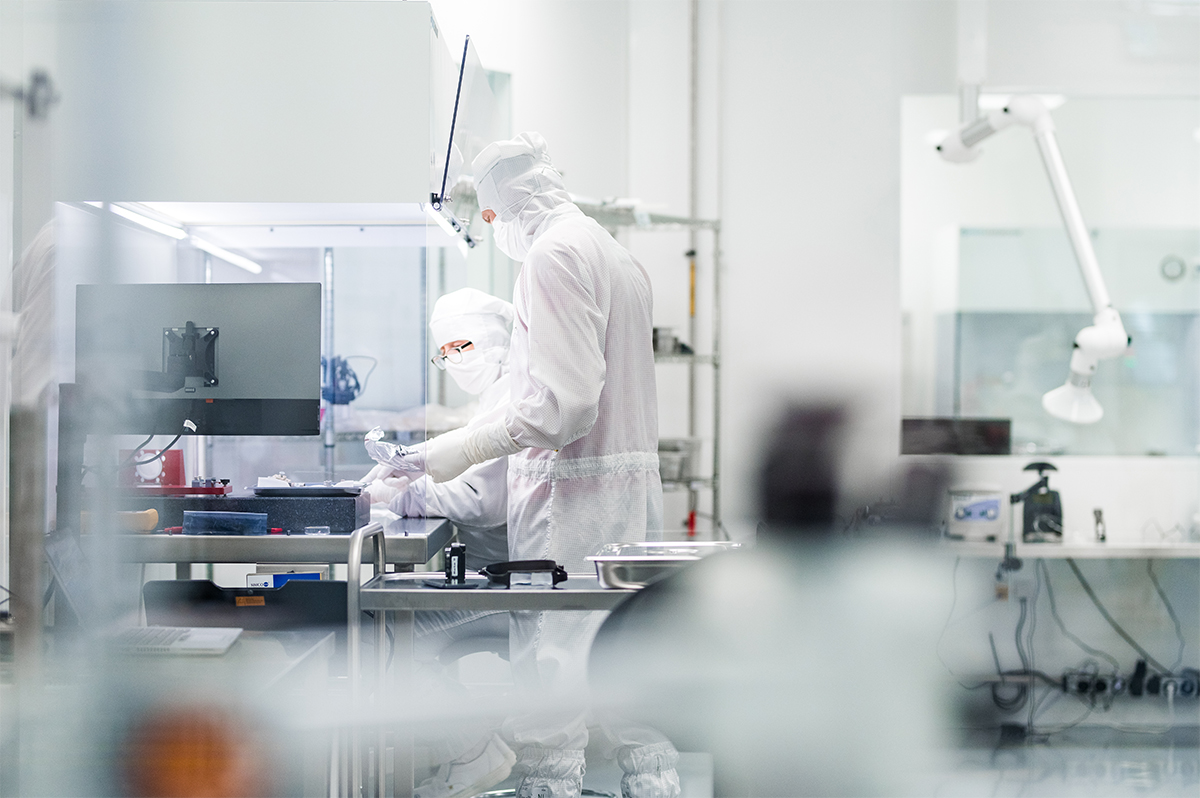Source: Eindhovens Dagblad, by Peter Scholtes
Nice, isn't it, as a supplier doubling your turnover for ASML and other chip companies? But don't bet on just one horse, Sioux believes. The Eindhoven-based technology company also wants to accelerate growth in other sectors.
He just returned from the United States. Leon Giesen, CEO of Sioux Technologies, has won a long-term development contract there from a pharma company. Isn't the Eindhoven-based company's growth for research and development projects in the high-tech sector enough for ASML and other customers in the ever-expanding chip sector? Well, no. Giesen and his upcoming successor René van Wijk have a different vision. The company expects to grow from 500 to 1000 employees for activities in the semiconductor industry. The doubling - at least - that ASML foresees for 2030 will also be visible at the supplier that develops parts for new generations of chip machines.
But if the work for the remaining 300 employees who now serve customers such as Thermo Fisher and Philips does not grow faster, a risk arises. ''We should not make our dependence on the chip activities in Eindhoven too great,'' Van Wijk warns. ‘If ASML sneezes once, we will all get sick.’
Sioux is an atypical supplier to the high-tech industry. It develops, designs and assembles new systems or modules. Half of its workforce of some 700 people in Eindhoven and 1200 worldwide are software specialists or mathematicians. With experts in mechanics, electronics and optics, the company can put together a complete team that can take on a development project at an early stage.
Sioux grows year after year. In 2023, it generated a turnover of around 135 million euros, an increase of around 10 percent compared to the 123 million in the previous year. The operating result is about 6 percent of turnover, Giesen says. He calls 2023 ‘a pretty complicated year. Sioux noticed delays in orders from customers in what is called the ‘backend’ of the chip industry; companies involved in packaging and embedding chips in devices.
Spreading risks and internationalization
‘After the corona period, pressure arose on customers' development budgets. In the second and third quarters, we were unable to achieve a positive result. Projects were postponed. From the fourth quarter on, the market went up again. Now we are again in a phase where we have to sell 'no'.’ With a turnover of around 150 million euros, profitability will rise sharply this year, is the expectation.
From January 1st, 2025, Giesen (64) will hand over the helm to Van Wijk, after a ten-year period of leadership, who is now responsible for the assembly branch. The new director wants Sioux ‘to continue and expand in large part,’ he says. With 'more focus beyond the chip activities in Eindhoven'. ‘Our knowledge can be put to good use for other markets and companies.’ Sioux wants to 'spread and internationalize its activities more'. This is already happening in part, with Sioux founder and owner Hans Duisters leading the Asian branch, with offices in Vietnam, China and Singapore. ‘For clients in the United States we also do software development from Vietnam and Singapore,’ Van Wijk illustrates.
In addition to the semiconductor industry, analytical market (such as Thermo Fisher's electron microscopes) and medical sector, 'clean energy' could become the fourth major market. Giesen gives the example of an order for the development of an inspection system in a battery production line. ‘This is a market that is coming up in the next five to 10 years.’
Seven buildings at Esp industrial park in Eindhoven are occupied by Sioux. ‘We have one building left. By the end of next year we will start to be tight here,’ Giesen anticipates.
To enable expansion at Esp, the municipality would have to change the zoning plan. Might the Brainport Industries Campus where ASML wants to expand be an alternative?Giesen shakes his head.’We want to keep our identity.The Sioux name must be visible. That's why we want to stay on Esp.’
The company will build a satellite plant near Magdeburg in eastern Germany. There, a new Intel chip factory and related industry will provide additional work. But Sioux also plans to carry out projects there for clients in other industries such as Thermo Fisher and Philips. After a start in temporary premises with about thirty employees at the end of this year, the company expects to eventually grow to about three hundred people.
The tight labor market in Southeast Brabant is an important reason for the German location, says Giesen. ‘We can't find the people here anymore.’ Through the University of Magdeburg, Sioux expects to recruit new recruits, helped by the attraction of Intel.
The proliferation of applications of technology around the world ensures that there is more than enough to do for Sioux. ‘We have to make choices,’ Giesen states. Employees have a say in that. ‘They decide which project we will or will not take on.’ Van Wijk: ‘The employee is number one at Sioux and that has to stay that way.’
